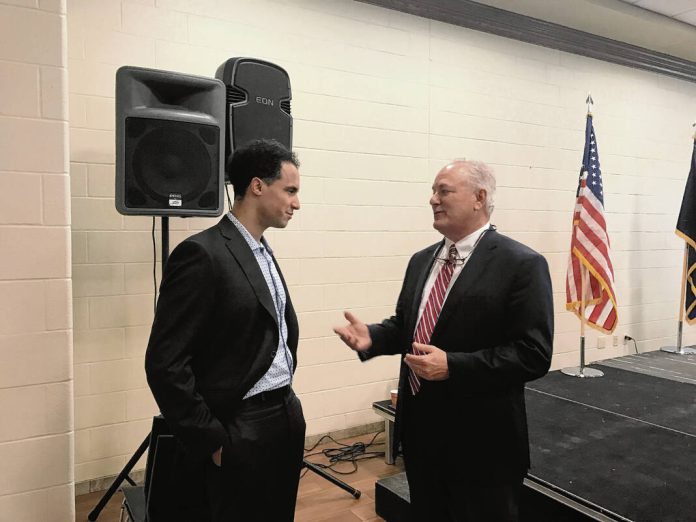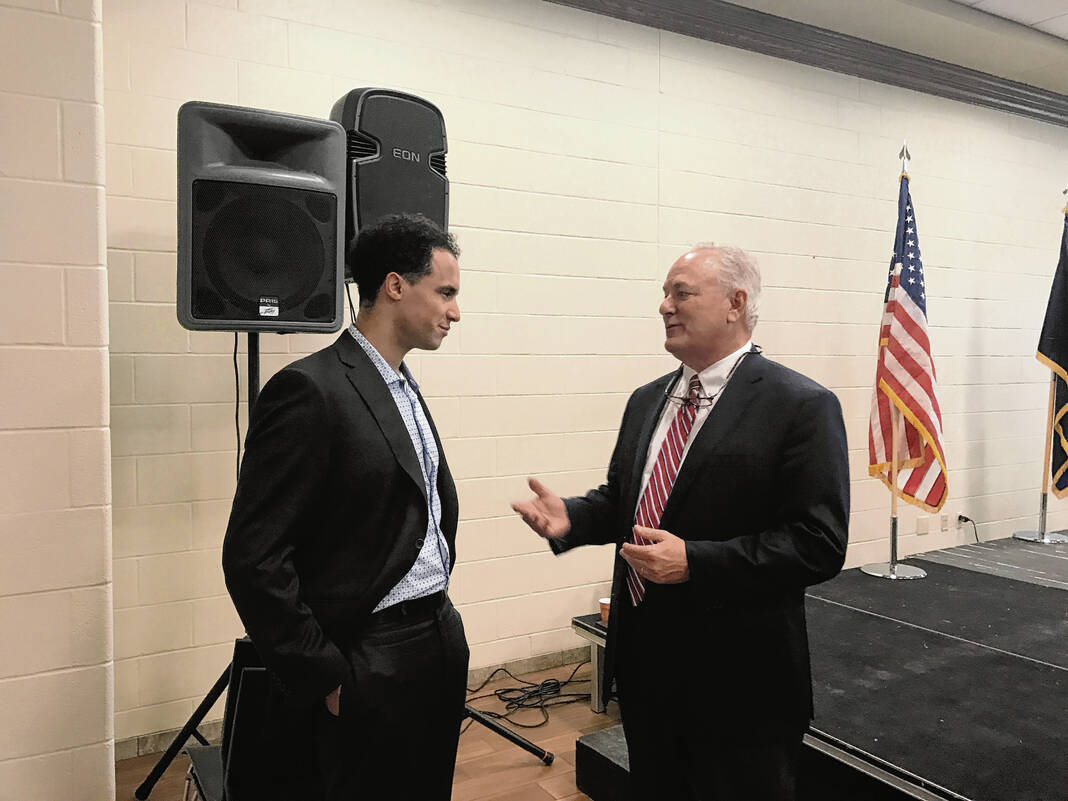EDINBURGH – A new partnership between a high-tech Columbus firm and the Indiana National Guard may prove to be pivotal in the development of commercial and military transportation.
In a partnership with PRUV Mobility, the National Guard has agreed to allow the 1,000 acres north post at Camp Atterbury near Edinburgh to be utilized as a secured hub for next-generation mobility innovation.
This will allow the Franklin Street-based mobility solutions team to test state-of-the-art technology on 10½ miles of restricted roads, PRUV Mobility CEO John Fairbanks said. However, many older and well-worn roads will have to be repaired and resurfaced before testing can begin.
The 10-year, $940,000 lease also includes permission for PRUV to use 55 acres for the construction of buildings such as a research campus.
“This will spur the creation of high-paying engineering jobs, create opportunities for students to engage in hands-on learning, and expand academic research opportunities,” Fairbanks said.
As an independent facility, the hub “will become a global drawing card for start-up, early stage, and existing vehicle technology companies,” Fairbanks said. He made his comments to over 100 people Friday that included transportation executives, government leaders and military personnel.
Currently, PRUV is heavily involved with self-driving vehicles that require no human intervention to operate. The company refers to them as ‘autonomous’ vehicles.
As Fairbanks puts it, the new agreement allows the partners “to build a sandbox” for the testing of advanced mobility technologies in a variety of ways.
“One of the things we look at is the entire advanced mobility ecosystem,” Fairbanks said. “That would include everything from materials testing to the vehicle itself, from communication channels to embedding controls and cyber security.”
Initially, companies expected to become strategic partners with PRUV are located in or near Indiana, Fairbanks said. They include Cummins, Inc., Allison Transmission of Indianapolis and ClearFlame Engine Technologies of Geneva, Illinois. Manufacturers and universities from such cities as Ft. Wayne and Lafayette will also be asked to become strategic partners and use the Atterbury facilities, he said.
“After that, we’ll start to propagate to a wider area,’ Fairbanks added.
Maj. Gen. R. Dale Lyles, the 59th Adjutant General of the Indiana National Guard, says there are several other proving grounds and test sites. However, he believes Camp Atterbury will be unique as new technologies are adapted for military use.
Since the National Guard trains at Atterbury mostly on weekend, few people will be in or near the proving ground and test site on weekdays, Lyles said. In addition, the major general says the camp provides enhanced security.
“Eventually, as PRUV gets into the defense industry business, you can see them going across the road and using the restricted air space,” Lyles said. “We also have all the certificates required to do that type of (classified) work.”
But Lyles emphasized that the goal of using new technology for military use at Camp Atterbury is meant to save American lives.
“Imagine integrating these autonomous vehicles into a squad of infantrymen,” Lyles said. “The unmanned vehicle makes contact (with the enemy) first, and there is no American blood shed on that first contact. We will off-load that risk to a vehicle or robot.”
Lyles said it was just last week that word of this new partnership got the attention of the Association of the United States Army. The organization – a private, non-profit organization that serves as the professional association of the U.S. Army – sent representatives to Camp Atterbury to attend Friday’s announcement.
The search for a proving ground and test site for mobility innovation began in 2015, with several sites inspected all over the state, Fairbanks said. He credited retired U.S. Army Major General Omer “Clif” Tooley, formerly with the Indiana Defense Network, for suggesting Camp Atterbury and making necessary arrangements.
This story is by Mark Webber of The (Columbus) Republic, a sister newspaper to the Daily Journal.








